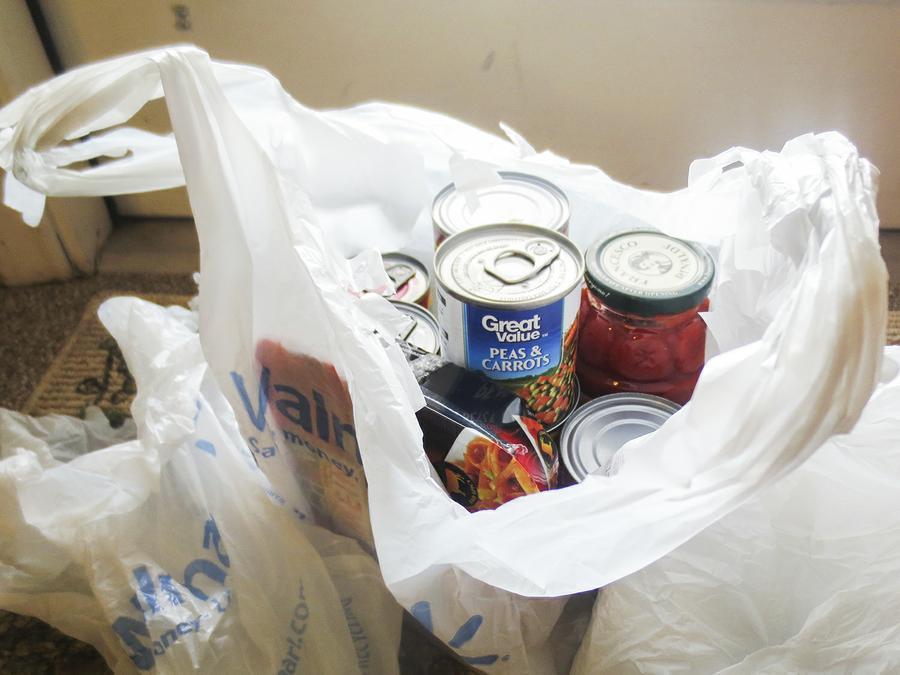Columbia City Council voted unanimously March 2 to table a ban on plastic bags after months of contentious debate.
The conflict centered around retailers who believe a ban would hurt their businesses and environmental groups who believe plastic bags are toxic to the environment.
Since the Osage Group first proposed a ban on single-use plastic bags in October, the American Progressive Bag Alliance has been vocal about the consequences of prohibiting plastic bags.
“We do not believe a ban of plastic bags is effective or smart in America,” APBA spokeswoman Mindi Mebane said. “We would instead support recycling and recycling education, which are better alternatives to bans or taxes on plastic bags.”
Mebane said APBA represents plastic recyclers and manufacturers which employ 500 Missourians.
“‘Single-use plastic bags’ is a misnomer,” Mebane said. “Bags are recycled for everyday household uses, like liners for your trash can.”
Mebane said plastic bags are “100 percent recyclable.”
“It’s very easy to recycle plastic bags,” Mebane said. “Plastic bag manufacturers have placed 30,000 bins across the country; plastic film and bags are the fastest growing sector of the recycling industry. It’s very easy to recycle and reuse plastic bags without jeopardizing American jobs.”
Columbia’s recycling facilities do not recycle plastic bags. Customers may drop plastic bags off at recycling bins at Hy-Vee, Gerbes and Walmart, but city employee Leah Christian said Columbia does not currently have the resources or space to store and recycle plastic bags.
While plastic bags are reused by individuals, a substantial amount end up as landfill and litter.
“We estimate paying staff about $47,700 to pick up litter,” Christian said. “City staff estimates a quarter of litter around the landfill is plastic bags, so it costs about $11,000 every year to pick them up. We also spend a lot of energy and volunteer time picking up litter and staff estimates that plastic bags rank third in the amount of the litter around the city.”
At a public forum in February, members from the Energy and Environment Commission and the Sierra Club expressed concerns about the environmental impact of plastic bags.
Frederick vom Saal, professor of biological sciences, described the health effects of chemicals used to make plastic bags, which pick up other pollutants and carcinogens when exposed to sunlight or floating in water. Vom Saal said the pollutants can raise the risk of dementia and fetal development issues.
“These bags have a generational impact,” vom Saal said. “The damage to your child is transmitted to your grandchild.”
At the City Council meeting, council members were concerned by environmental impacts, but city staff recommended tabling the ban in order to address concerns from local businesses. The ban would remove plastic bags from grocery, drug, convenience and retail stores that sell perishable foods and place a 10-cent fee on paper bags.
“I don’t believe in banning legal and useful products,” Fifth Ward Councilwoman Laura Nauser said. “I’m not in favor of limiting people’s choices just because some bags end up in a landfill.”
Nauser encouraged people to take personal responsibility for their actions and also expressed alarm at the Missouri state legislature’s recent proposal to restrict municipalities’ ability to ban plastic bags.
“Local communities should be able to decide what is best for local communities,” Nauser said.
Nauser said she would be in favor of increasing the amount of overall recycling receptacles the city offers. She would also encourage gas stations and convenience stores to offer recycling.
Christian said multiple stores and businesses expressed concerns about implementation costs. Lucky’s, which only uses paper or reusable cloth bags, was the single retailer who supported a plastic bag ban.
“Lucky’s fully supported a plastic bag ban,” Christian said. “But they opposed the tax on paper bags. They felt that would a punishment to consumers.”
Christian said she would caution against saying that plastic bags are a permanent fixture in Columbia. The council requested more information about the costs and benefits of implementing a plastic bag ban, and city staff is working to gather more information.
Christian also mentioned Austin, Texas, which banned plastic bags only after a long period of information gathering and community response.
“The next step is to get a website up and running about the issue,” Christian said. “We’ll put all the documentation in one place and hopefully we can continue to have a dialogue. We’re here to respond to our citizens, so we’ll wait and see what people have to say.”






